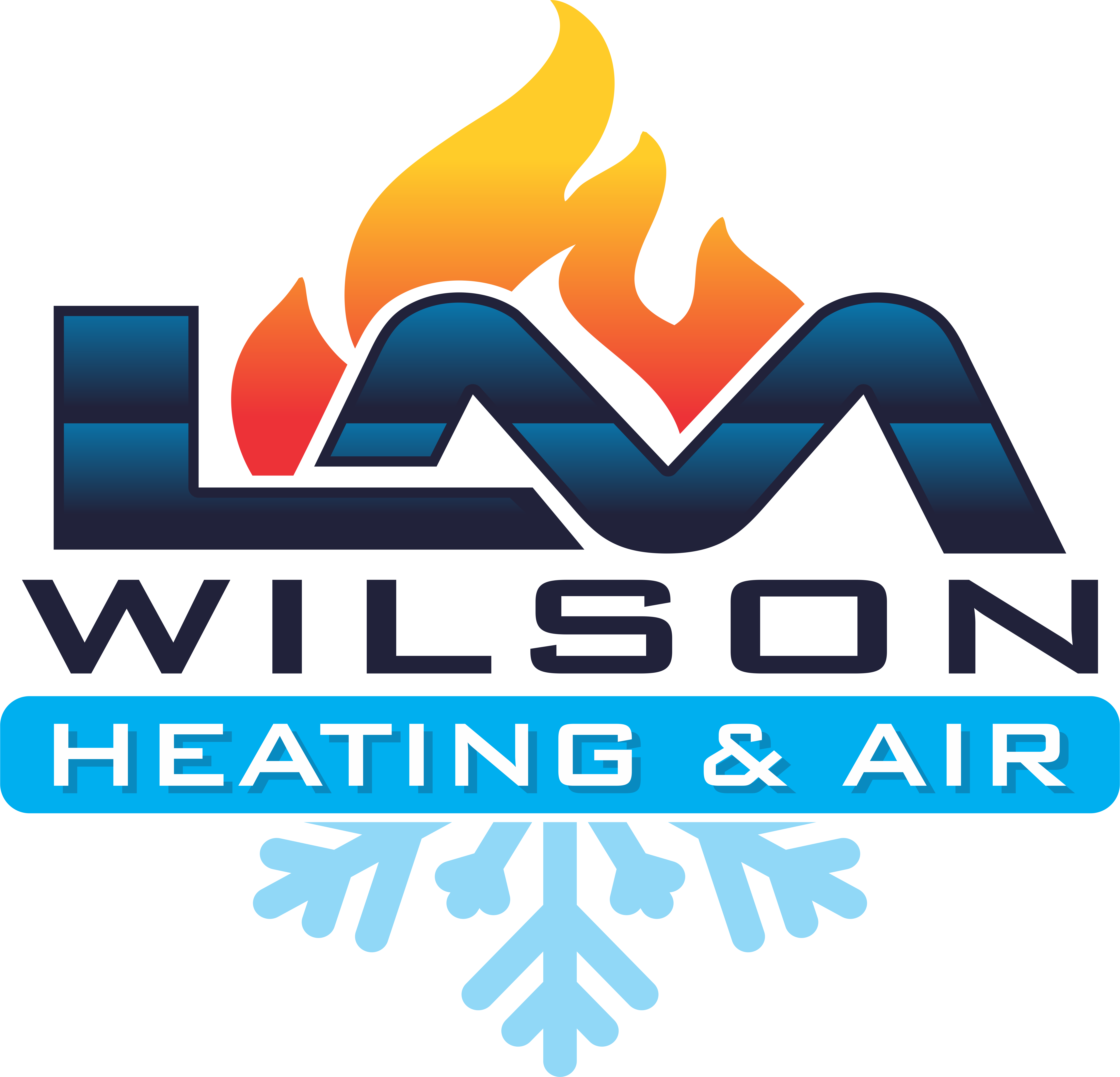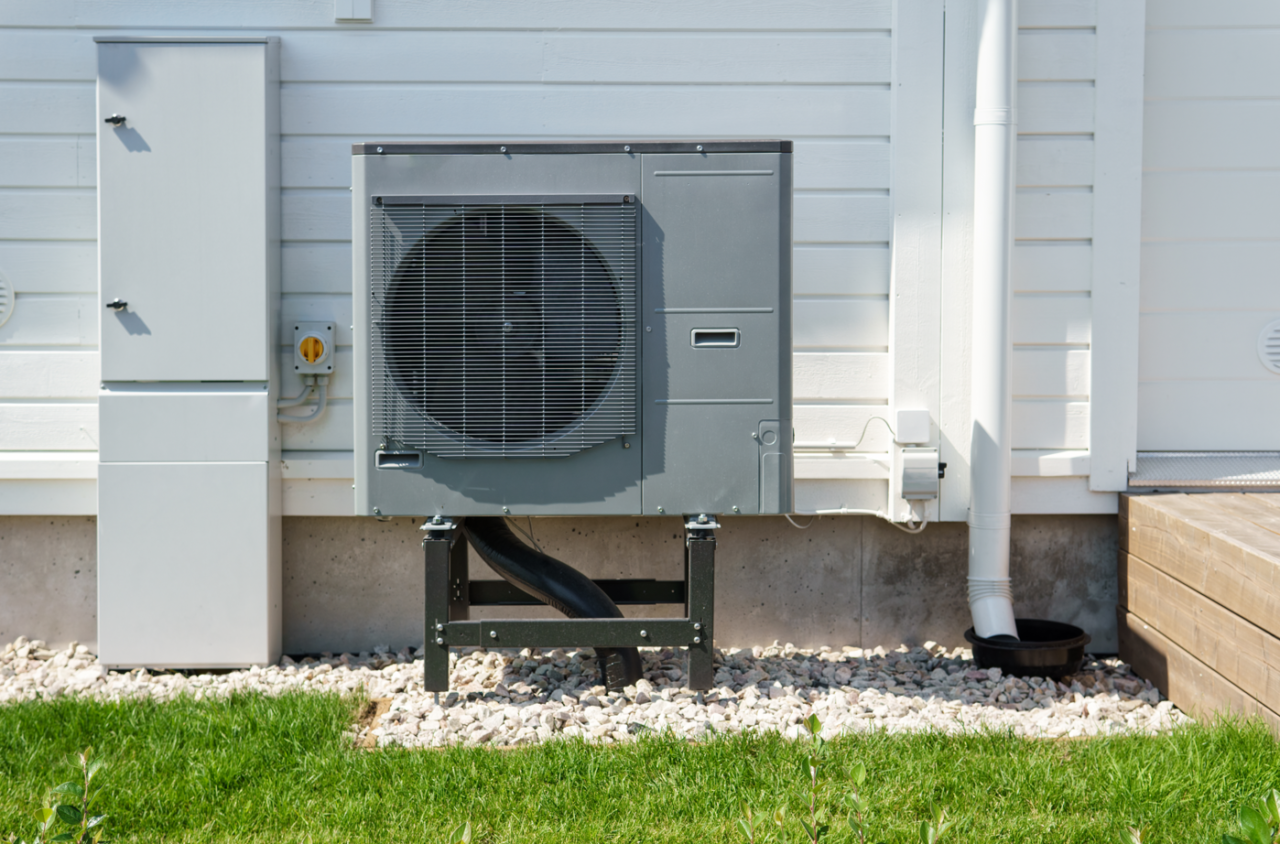When it comes to keeping your home warm, there are various heating options available. Two popular choices are heat pumps and furnaces, each with its own set of features and advantages. In this blog post, we’ll delve into the differences between a heat pump and a furnace, exploring their pros and cons, and ultimately helping North Carolina residents make an informed decision.
What is a Heat Pump?
A heat pump is a versatile heating and cooling system that operates by moving heat rather than generating it. It works by extracting heat from the air or ground outside and transferring it into your home during the colder months. In the summer, the process is reversed, and heat is removed from your home to keep it cool.
Pros:
- Energy Efficiency: Heat pumps are known for their energy efficiency, as they use electricity to move heat rather than generating it.
- Dual Functionality: One of the key advantages is that heat pumps can both heat and cool your home, providing year-round comfort.
- Environmentally Friendly: With no combustion process, heat pumps produce fewer greenhouse gas emissions compared to furnaces.
Cons:
- Cold Weather Limitation: Heat pumps may become less efficient in extremely cold temperatures, making them less ideal for areas with harsh winters.
- Upfront Cost: The initial cost of installing a heat pump can be higher than that of a furnace.
What is a Furnace?
A furnace, on the other hand, is a traditional heating system that generates heat by burning fuel, usually natural gas, propane, or oil. The produced heat is then distributed throughout the home via ductwork.
Pros:
- Reliable Heat Source: Furnaces are known for their ability to provide consistent and reliable warmth, making them suitable for colder climates.
- Quick Heating: Furnaces can quickly raise the indoor temperature, making them effective in extreme cold conditions.
- Lower Upfront Cost: Generally, furnaces have a lower initial cost compared to heat pumps.
Cons:
- Energy Efficiency: Furnaces are generally less energy-efficient than heat pumps because they burn fuel to generate heat.
- Limited Cooling: Unlike heat pumps, furnaces do not have cooling capabilities. A separate air conditioning system is required for cooling.
Which One is Better for North Carolina?
Now that we’ve outlined the key differences, let’s discuss which heating system might be better suited for North Carolina residents.
Heat Pumps:
Pros:
- North Carolina Climate: North Carolina experiences a diverse climate with hot summers and mild winters, especially in the central and coastal regions. In such a climate, both heat pumps and furnaces can be viable options, but certain considerations should be taken into account.
- Energy Efficiency: In a climate where cooling is as important as heating, the dual functionality of heat pumps makes them an attractive option.
- Moderate Winters: North Carolina’s relatively mild winters make heat pumps efficient for most of the heating season.
Cons:
- Cold Weather Challenges: While winters are generally mild, there can be occasional cold spells. Heat pumps might be less efficient during these colder periods.
Furnaces:
Pros:
- Quick Heating: Furnaces can quickly raise the indoor temperature, which can be advantageous during colder days.
- Reliable Heat Source: Furnaces are reliable in providing consistent warmth, ensuring comfort during occasional cold snaps.
Cons:
- Limited Cooling: Furnaces lack the cooling capabilities that heat pumps offer, potentially requiring a separate cooling system for the summer months.
So Which one is Better?
The choice between a heat pump and a furnace ultimately depends on your specific needs, preferences, and the climate of your region. Here are some factors to consider:
- Climate Preferences: If you prioritize energy efficiency and dual functionality, a heat pump might be the right choice. If quick and reliable heating is crucial, a furnace could be more suitable.
- Budget: Consider your upfront budget as well as long-term energy costs. While furnaces might have a lower initial cost, heat pumps often result in lower energy bills over time.
- Environmental Impact: If reducing your carbon footprint is a priority, a heat pump’s environmentally friendly operation could be appealing.
- Backup Heating: Some homeowners in colder climates opt for a hybrid system, combining a heat pump with a backup furnace for extremely cold days.
In conclusion, both heat pumps and furnaces have their merits, and the decision should be based on your specific requirements and the climate of North Carolina. Consulting with a heating and cooling professional can provide personalized advice tailored to your home and preferences.
Remember, the key is to strike a balance between efficiency, comfort, and budget to ensure your home stays cozy throughout the seasons. Whether you use a heat pump or a furnace, LM Wilson is here for 24/7 repairs, maintenance, or replacements/installations. Call us today at (336) 663-1370.


